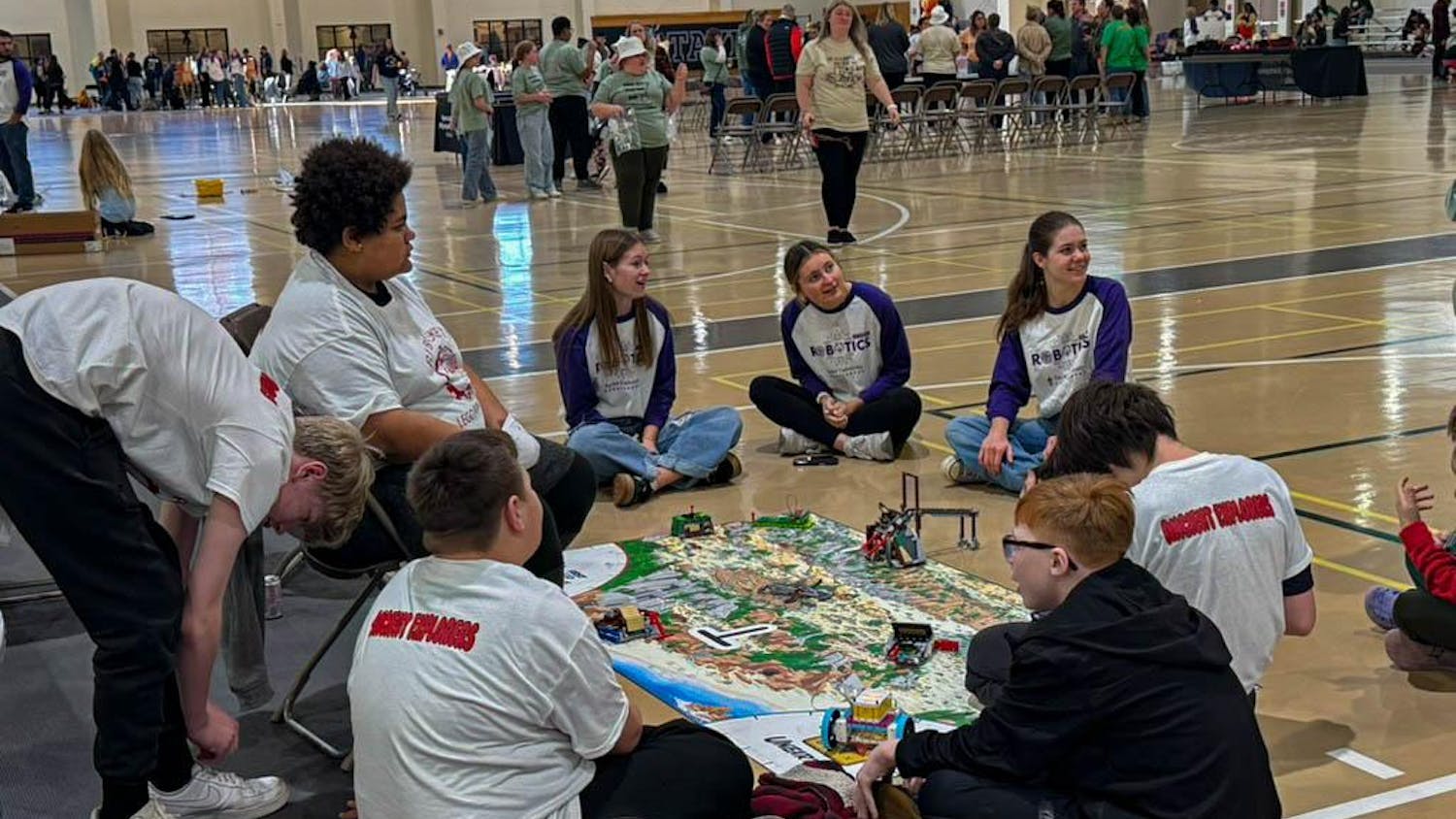 By Brecken Mumford | Echo
By Brecken Mumford | Echo
Something I say a lot? I love people.
Something I mean whenever I say it? I love people.
Something I strive to do? I love people.
Something I don't always do well?
Love People.
Throughout this semester, I've really realized just how much I say that . . . that I love people. And I see it, sometimes, how I do love people well 一 surprising a friend with a cup of coffee to help brighten a rough day, sneaking a note of encouragement on their whiteboard so they know someone sees them or inviting them to my apartment to know they are welcome there . . . but I don't do that all the time.
Sometimes I do a lot of complaining, or I get frustrated quickly. Sometimes I let my reactions get the best of me and I forget for a little too long that you're a human being who has emotions and experiences . . . and that is not cool. And most of the time, I'm somewhere in between those spaces.
A place where I do a lot of this is when I tell someone, "Let's get coffee soon" as I squeeze a hand goodbye. Or I'll say, "We should hang out this week" although we both know classes, meetings and, well, sleep, will be taking up the majority of our time. What I do is cramming in some type of conversation in that awkward half hour on Wednesdays before class because I haven't seen you in two weeks. Or asking you "How are you?" on the sidewalk as we walk opposite directions.
The hardest thing about that is that I genuinely mean those things when I say them. And I know that you do too.
We do want to get coffee. We do want to watch a movie and catch up. Sometimes, those awkward half-hour small-talk conversations are so life-giving because at least we get to see one another for a little bit. And if we could, we would stop mid-stride to hug and listen to each other about how we're really not okay. But we don't.
We're working ourselves into the ground because we think we can do it all; we think we can be everyone's best friend and do our homework and all of the extracurriculars. We spread ourselves too thin because of pressures from others as well as ourselves to perform perfectly, to serve perfectly 一 to love people perfectly.
So I'm here to tell you something: You do not have to be everything and everyone's everything. In fact, you don't have to be anyone or anything's everything."Why does this intentional community feel lonely?"
Last week at Stand Up for Your Sibling, when the question "Have you ever felt lonely at Taylor?" was asked, the majority 一 if not everyone 一 stood up for the anonymous peer they were representing. Almost everyone . . . and only a fraction of the student body was in Rediger that Thursday. Imagine if the entire student body had filled out those surveys, how many of us would have had to stand for someone around us?
"Community" and "intentional" are tired words on Taylor's campus 一 we're tired people. We're always going, always busy, always living in this community, but have we ever taken the time to stop and really think about the "community" we're building? Why does this intentional community feel lonely?
It's not because we don't care, because I think we do care. But, sometimes we go a bit overboard and try to make everyone feel less lonely, which really only amplifies the problem. I think we need to reframe our idea of "caring," because caring does not mean being best friends with everyone and having 8 million coffee dates and meetings every week, or going to every event and being in every cabinet.
We can't sustain deep, healthy, growing relationships with everyone 一 that's something I'm still learning . . . every day. I physically, emotionally, mentally and spiritually cannot do that; I don't think you can either. So what do we do?
I don't know if I have all of the answers right now, but I know that love and loneliness are at odds with each other. So, we need to start small. We need take a step back and look at our lives and see where we may be stretched a little too thin; we have to admit to ourselves that we really can't do it all and that's okay. We commit to coffee with a few, but are friendly to most.
Recognizing our limits doesn't mean we don't care, it simply means we know that we can't love them or ourselves the best they deserve (or we deserve).



